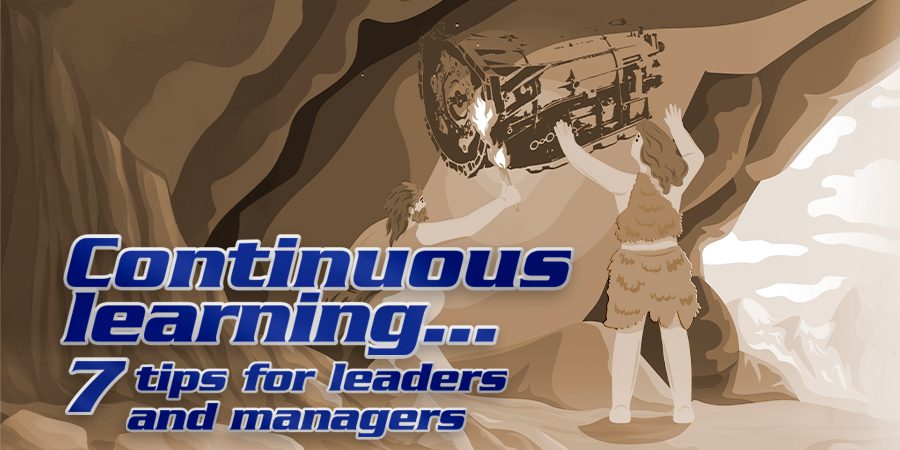Up Your Business is an exclusive GEARS Magazine feature in which I share stories, insights, and reflections about real business and life challenges.
At this year’s Powertrain Expo, I’m presenting a workshop entitled Pea Soup:The Cure for Entrepreneurial Split Personality Disorder.I’ve compiled some practical tools to conquer the two-hat challenge that I wrote about in the May 2016 issue. These tools will help you take your company exactly where you want it to go. You’ll learn the secrets for managing things and leading people.
Most likely you’ve seen the popular TV show, Shark Tank in which aspiring entrepreneur-contestants make business presentations to a panel of five successful “shark” investors, who then choose whether or not to invest. Their investment includes cash and an equity stake in the business, so part of the investment value the shark brings to the table is expertise.
While Shark Tank is fascinating, I think we can learn more from a similar, lesser-known show called The Profit. On each episode, Marcus Lemonis, the wealthy CEO of Camping World, offers struggling small businesses capital investments along with his expertise in exchange for an ownership stake in the company.
This show differs from Shark Tank by focusing on one business per episode and details the decision-making steps Marcus employs: problem assessment, business valuation, purchase negotiation criteria, and risk-reward analysis, as well as remediation plan development and implementation.
He demands 100% control over the financial business decisions; the other owners are responsible for managing the business according to his guidelines. Viewers also get to see the results of the investment and changes made in the business.
Marcus uses three key criteria in determining the potential of a business investment. Ironically, they fit perfectly into the Pea Soup recipe.
Surprise! Profit Isn’t One of the 3 Criteria
As counterintuitive as it sounds, neither profit nor sales are among the three criteria Marcus considers to be essential before making an investment. He believes that profit and sales are the natural consequence, provided three other criteria meet or can be brought up to his standards in the subject business: People, Product, and Process.
People — It’s been said that businesses are people… not places or things. Without people there is no business: No one to lead, no one to manage, no one to sell, no one to buy, no one to supply, and no one to produce.
One of the first things Marcus does in each episode is to speak with the employees. He quickly gets an accurate perspective of such conditions as employee morale, company culture, obstacles to productivity, customer service and satisfaction, ownership commitment, etc.
From my years of consulting with auto shops, I can confirm that this is a great starting point. I learned way more about the business and its issues by speaking briefly with the employees than I did from hours of conversations with the owners and managers.
Just as I experienced, Marcus discovers dysfunctional aspects of the business that management isn’t even aware of. Management experts have called this phenomenon “the iceberg of ignorance.” An iceberg is a great metaphor because just as 2/3 of an iceberg is hidden under water, 2/3 of the business’s problems are hidden from management’s view, but they do exist. And to make matters even worse, they’re known to the employees, suppliers, and customers.
With that in mind, it’s also often helpful to interview suppliers and customers to get an accurate perspective of a company’s condition.
In the case of The Profit, Marcus looks for passion, attitudes, skills, and commitment levels of all the players: owner(s), manager(s), and team members. If the people part of the business is strong, Marcus moves on to the second P word: Product.
Product — With respect to product, of course Marcus is looking for such things as uniqueness, quality, and price point relative to competition, but he also focuses on production costs, production/lead time, convenience factors, packaging, and other aspects relative to the products and services of the business. In automotive repair shops, I, too, looked at aspects of the product.
- Uniqueness would convert to the answer to the question, “What differentiates your company from the other auto repair shops in your area?”
- Quality would generally deal with statistics relative to comebacks and no-goes, but it would also include such things as minimum rebuild standards, warranties, etc.
- Price point isn’t as simple as some would like you to think. I know many trainers in our industry believe price shouldn’t be used as a differentiator. They say it’s okay to have the highest prices in town, and dismiss it out of hand, or insinuate that your sales skills are lacking if you can’t overcome price objections. According to their argument, if you can’t differentiate with service, quality, warranty, speed, convenience, etc., all that’s left is price.
Well, if price relative to the competition isn’t important, why not charge double or triple your current prices? That would most likely be ludicrous… price may not be the only factor, but it’s always a factor. Your overhead expenses and costs of production, plus your profit, combine to determine your price.
If you can achieve your sales and profit objectives with lower prices than the competition, good for you. But if you can’t compete within the market’s competitive price range, you’ll need to reduce costs or increase volume to overcome lower profit margins. It’s only logical.
By the way, you can’t overcome unprofitable pricing with greater volume. That’d be like the farmer who was losing 10 cents on every watermelon he delivered to market, so he decided to get a bigger truck to make it up in volume.
Call me if you’d like to discuss price strategies, because this is such an important and individualized aspect of your business.
Process — The third “P” Marcus applies is Process. He believes that good processes can overcome most problems within a business. He leaves no stone unturned. Every aspect of the business is affected by or impacts process.
- With respect to people, the obvious thought would be that good processes will boost sales and productivity. While this is so, it also improves morale, culture, commitment, and overall job satisfaction. Simply put, companies and their employees all feel better about themselves and more proud of what they do when they’re a part of a highly effective, process-driven company.
- It’s easier to relate product to process because we tend to think of production of repair work (our product) as a sequential technical process.
But process encompasses more than that. In addition to production process, we need processes for virtually all aspects of our businesses: marketing, sales, team building, parts purchasing, quality control, customer service, facilities maintenance, operations management, accounting, employee relations, etc.
All businesses have processes in place for everything that gets done. Unfortunately, in many cases, those processes only evolve over time in reaction to the activity of the business. There’s little or no thought or planning involved, and it simply becomes nothing more than, “This is how we’ve always done it here.” These processes tend to be ineffective and lack clarity.
Then there are the businesses that create new processes every time something doesn’t go as planned; a job goes south and, instead of addressing the issue on an individual basis, they put a new process into place. This is totally reactionary; it’s sometimes referred to as “the tail wagging the dog.” And usually it’s met more with derision than respect.
Effective processes are developed by design… not by accident. They’re the result of considering why and how things are done, and then clearly communicated throughout the company.
Most successful businesses with highly effective processes have created a manual of operations that details why and how everything in the business is to be done. If the owner was suddenly out of the picture, the team could run the business by following the manual.
Next Steps
If you haven’t watched Shark Tank or The Profit, I recommend them. I think you’ll find them to be entertaining and you’ll learn new ways of thinking and gain useful insights into improving your business.
Also consider checking with ATRA for help with creating an operations manual for your shop. In fact, you can check with the ATRA BookStore booth at Expo.
This year’s Powertrain Expo is scheduled over the last weekend in October. Come and learn from a whole slate of management experts about how you can take your business to the next level. Plus you get to spend Halloween in Las Vegas… does it get any better than that?
I hope to see you there.















